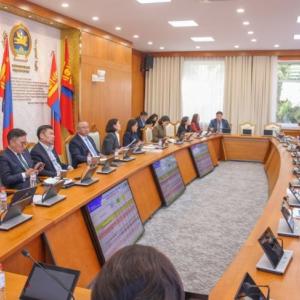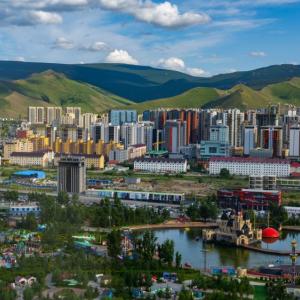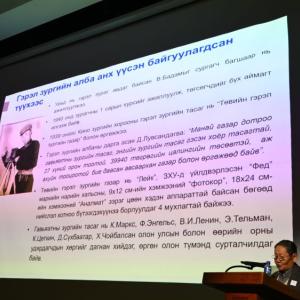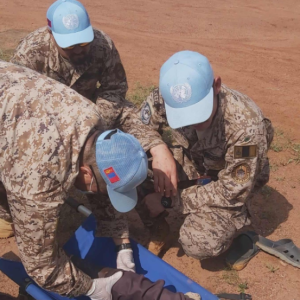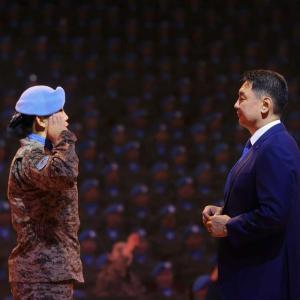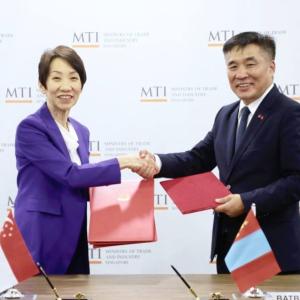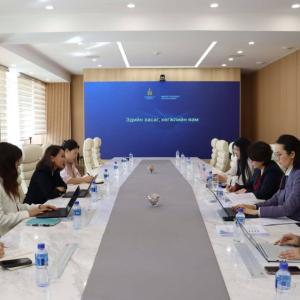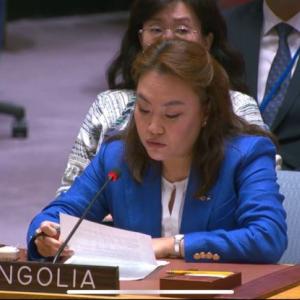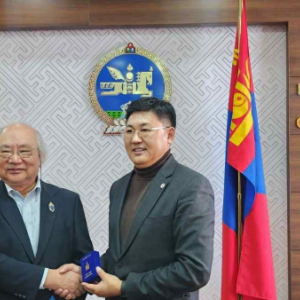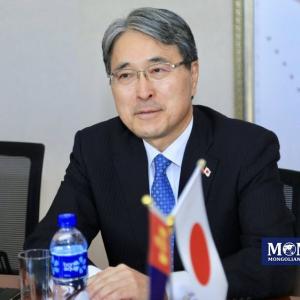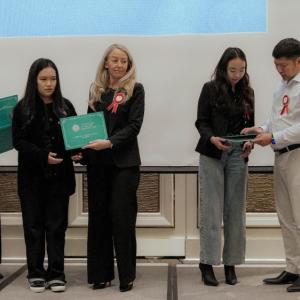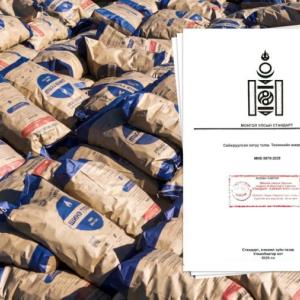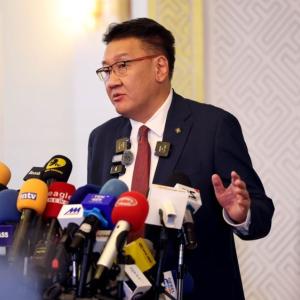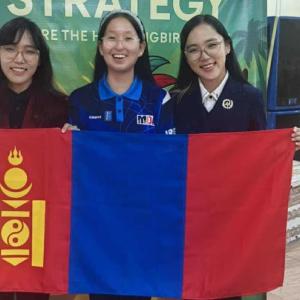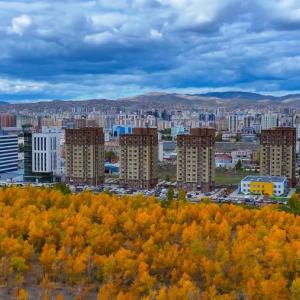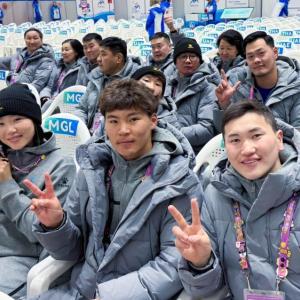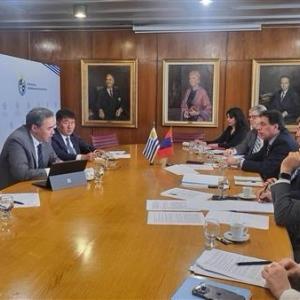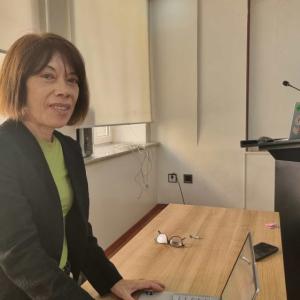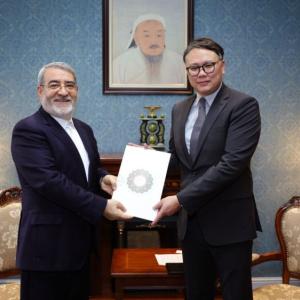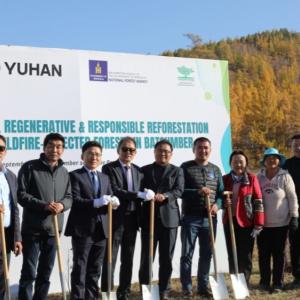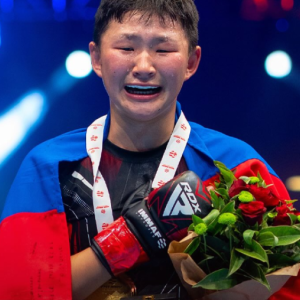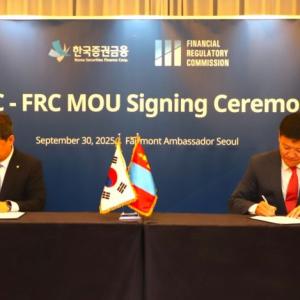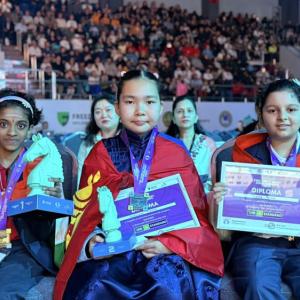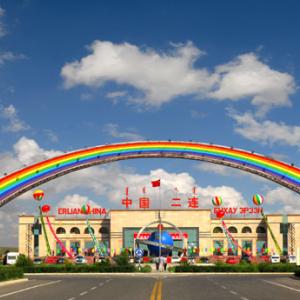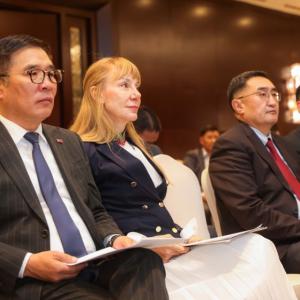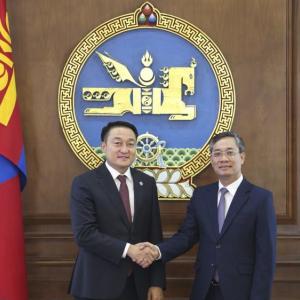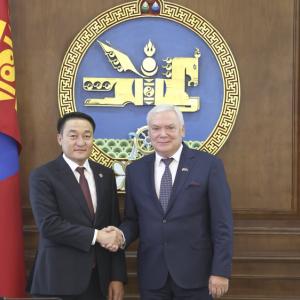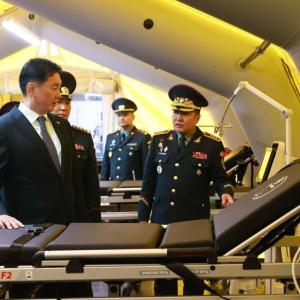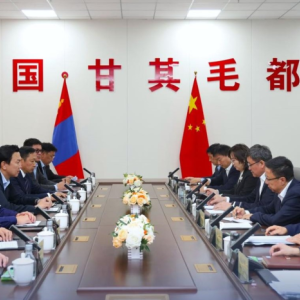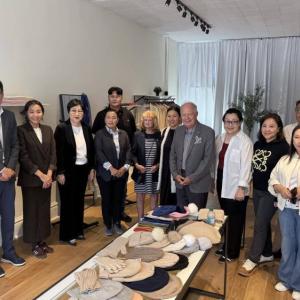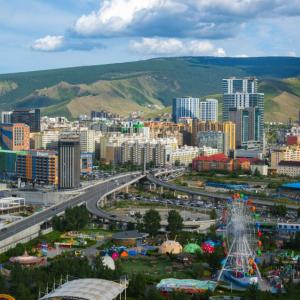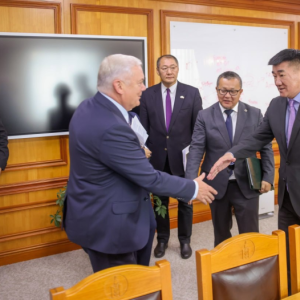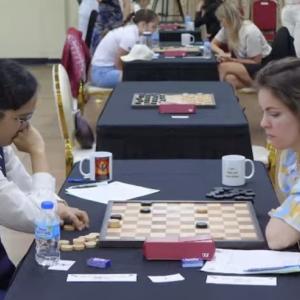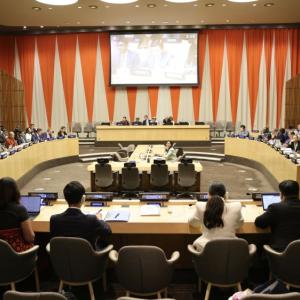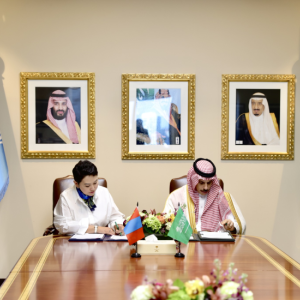Ban Ki-Moon Delivers Honorary Lecture “Addressing Global Challenges; Mongolia and the Republic of Korea”
Politics
Ulaanbaatar, November 3, 2024 /MONTSAME/. On November 3, 2024, Mr. Ban Ki-Moon delivered an honorary lecture on the topic “Addressing Global Challenges; Mongolia and the Republic of Korea” at the Chinggis Khaan National Museum.
Guests including UN Resident Coordinator Tapan Mishra, public figures of Mongolia, and representatives from the business community, NGOs, universities, and students attended the lecture. Foreign Policy Advisor to the President of Mongolia Odbayar Erdenetsogt opened the lecture with a brief introduction of Mr. Ban Ki-Moon.
Mr. Ban Ki-Moon started his lecture by noting that he was incredibly honored to receive the State Supreme Decoration of Mongolia, Order of Chinggis Khaan, from His Excellency Khurelsukh Ukhnaa, President of Mongolia. “First of all, I'd like to thank each and every one of you who has come here today. I am very happy to be with you to discuss how Mongolia, as a member of the United Nations, can contribute to international peace, security, and development.
Ladies and gentlemen, yesterday I was
incredibly honored to receive the State Supreme Decoration of Mongolia, Order
of Chinggis Khaan, from His Excellency Khurelsukh Ukhnaa, President of
Mongolia.
I believe the Ceremony comes at a vital
juncture as we collectively strive to realize the achievement of the UN
Sustainable Development Goals take decisive climate action and advance world
peace through multilateralism, cooperation, and partnership.
Indeed, we stand on the precipice of a period of
pronounced change, one that will have profound implications for all people, our
planet, and the future of humanity, particularly the young generation who are
sitting here with me today. I'm honored to have an opportunity to address key
stakeholders, like the people of Mongolia, at a time of great significance for
accelerating the implementation of 17 UN Sustainable Development Goals through
partnership and action. I salute every one of you.”
“Ladies and Gentlemen, despite the challenges we face, the UN is undertaking a key transformational project to realize its vision and build on its previous essential work in the field of development. As you may remember, when 2000 dawned, the people of the world, were all excited. What will happen when the first day of January 2000 dawns? There were a lot of expectations. That's why my predecessor Kofi Annan, working together with world leaders and scholars, economists, and scientists, presented eight Millennium Development Goals. But unfortunately, this was a limited vision, mainly on how to help developing countries. I think it was also necessary to help, first of all, developing countries should be able to catch up with the developed countries.
However, looking back, these were very modest
proposals. That's why when I was sure that these Millennium Development Goals
were not going to meet the target by 2015, I thought that we needed to have
some successor vision.”
Mr. Ban Ki-Moon emphasized, “With just over five years left to their 2030 target date, no country is on track to achieve all of the SDGs. At the moment, the new Global Sustainable Development Report 2024 summarizes that, “only 16 percent of the SDG targets are on track to be met globally by 2030, with the remaining 84 percent showing limited progress or a reversal of progress.”
One of the key
attractive points in Mr. Ban Ki-Moon’s lecture was climate change.
Highlighting
that an urgent, just, and equitable transition from fossil fuels to green
energy is imperative to avoid the worst of the climate impacts and realize the
SDGs, Mr. Ban Ki-Moon commended the ongoing efforts of the Mongolian government
to plant one billion trees under the leadership of President of Mongolia Khurelsukh
Ukhnaa.
Refocusing the efforts on achieving SDG 5, which calls for achieving gender equality and empowering all women and girls, is critical as it is a true enabler of all of the other SDGs. Empowering women and girls and promoting gender equality is essential to solving the world’s biggest challenges, noted Mr. Ban Ki-Moon. As UN Secretary-General, he devoted much of his time and energy to advancing the rights of women around the world and fighting for gender equality.
Following his lecture. Mr. Ban Ki-Moon answered questions from the audience.


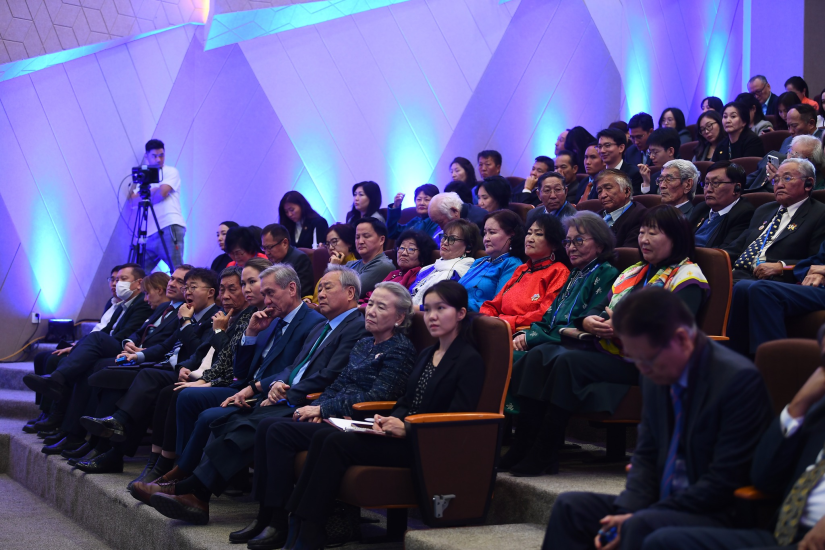
 Ulaanbaatar
Ulaanbaatar

